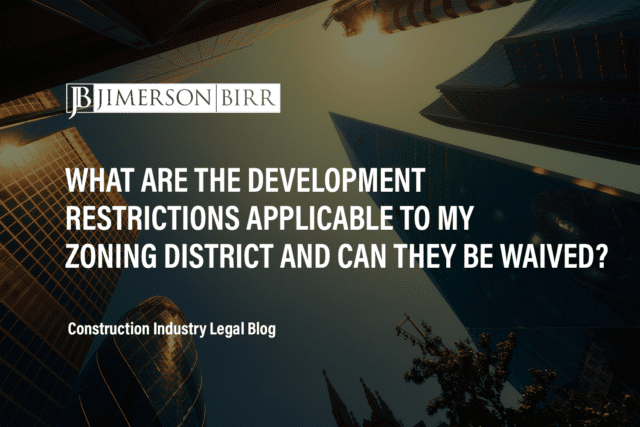How does bond financing affect governmental entities?
Bond financing, the method through which governmental entities commonly raise capital by issuing bonds to investors, plays a pivotal role in shaping the operations and growth strategies of governmental entities. These bonds act as debt instruments, with the issuing entity promising to repay the principal amount along with interest over a specified period.
Bond financing provides access to substantial funds that can be utilized for infrastructure development, public projects, and other essential services. This access to funds enables governmental entities to undertake large-scale initiatives that contribute to Florida’s economic development and the welfare of citizens.
Moreover, bond financing offers governmental entities flexibility in managing their financial obligations. By spreading repayment over several years, entities can align debt service payments with revenue streams, avoiding immediate budget strains. This flexibility empowers governmental entities to navigate fiscal challenges while continuing to meet their obligations and deliver vital services. Need help regarding bond financing? Schedule your consultation today with a top governmental entities attorney.
In Florida, which laws and regulations apply to bond financing?
In Florida, several laws and regulations apply to bond financing, including: · Florida Constitution, Article VII: Sets limits on state and local borrowing, including through bond financing. · Revenue Bond Act of 1953: Regulates the issuance of revenue bonds by governmental entities. · Municipal Home Rule Powers Act: Establishes procedures and requirements related to municipal borrowing, including required authorization for the issuance of certain bonds.
What are common issues regarding bond financing that lead to litigation?
The following issues are among the most common in actions regarding bond financing:
· Misrepresentation of Financial Information: Providing inaccurate or misleading financial information during bond issuance can lead to litigation. Investors rely on this information to make informed decisions, and any misrepresentation can result in legal action.
· Failure to Comply with Disclosure Requirements: Bond issuers are required to disclose pertinent information to investors, typically including financial statements, risks, and other
relevant details. Failure to comply with disclosure requirements can result in allegations of securities fraud and subsequent litigation.
· Breach of Fiduciary Duty: Board members and officials of governmental entities have a fiduciary duty to act in the best interests of bondholders. Any breach of this duty, such as mismanagement of funds or conflicts of interest, can lead to litigation.
· Default on Bond Obligations: If a governmental entity fails to meet its bond repayment obligations, bondholders may take legal action to enforce payment. Defaults can occur due to financial mismanagement, economic downturns, or unforeseen circumstances.
· Allegations of Fraudulent Activity: Allegations of fraudulent activity, such as embezzlement or kickbacks, in connection with bond financing can result in litigation. These allegations often involve investigations by regulatory agencies and civil lawsuits to recover losses.
· Violation of Securities Laws: Non-compliance with securities laws, both at the federal and state levels, can lead to litigation. This includes violations related to registration requirements and antifraud provisions.
We are value-based attorneys at Jimerson Birr, which means we look at each action with our clients from the point of view of costs and benefits while reducing liability. Then, based on our client’s objectives, we chart a path to seek appropriate remedies. To determine whether your unique situation may necessitate litigation, please contact our office to set up your initial consultation.
What steps should entities take to minimize the risk of litigation over bond financing?
To minimize the risk of litigation over bond financing, entities can implement the following strategies:
· Comprehensive Due Diligence: Conduct thorough due diligence before initiating any bond financing activities. This includes assessing the financial health of the entity, identifying potential risks, and ensuring compliance with regulatory requirements.
· Transparent Disclosure Practices: Maintain transparent disclosure practices by providing accurate and timely information to investors. This includes financial statements, risk factors, and any material developments that may impact investment decisions.
· Engage Legal Counsel: Seek guidance from experienced legal counsel specializing in securities law and bond financing. Legal experts can provide valuable advice on compliance matters, draft necessary documents, and mitigate legal risks.
· Risk Management Policies: Implement robust risk management policies and procedures to identify, assess, and mitigate potential risks associated with bond financing. This includes internal controls, monitoring mechanisms, and contingency plans.
· Regular Compliance Reviews: Conduct regular compliance reviews to ensure adherence to applicable securities laws and regulations. This includes staying abreast of regulatory updates and promptly addressing any compliance issues that arise.
· Investor Education and Communication: Through disclosure, educate investors about the nature and risks of bond financing, fostering a clear understanding of their investment. Maintain open lines of communication to address investor concerns and provide updates on the entity’s financial performance.
Frequently Asked Questions
What steps can entities take to mitigate default risk in bond financing?
Entities can mitigate default risk in bond financing by implementing sound financial management practices, maintaining adequate reserves, and diversifying revenue sources. Additionally, entities should conduct regular risk assessments, monitor market conditions, and proactively address any potential financial challenges.
How can entities address allegations of fraudulent activity in bond financing?
Entities should take allegations of fraudulent activity in bond financing seriously and conduct prompt investigations to determine the validity of the claims. If wrongdoing is identified, entities should take corrective action, including disciplinary measures, restitution, and cooperation with regulatory authorities. Transparency and accountability are key to restoring investor confidence and mitigating legal liabilities.
What are some common reasons governmental entities issue bonds?
Governmental entities commonly issue bonds to fund public capital projects like buildings, roads, utilities, or schools. Another common reason is taking advantage of low interest rates to refinance existing debt.
Have more questions about a situation related to bond financing?
Crucially, this overview of bond financing does not begin to cover all the laws implicated by this issue or the factors that may compel the application of such laws. Every case is unique, and the laws can produce different outcomes depending on the individual circumstances.
Jimerson Birr attorneys guide our clients to help make informed decisions while ensuring their rights are respected and protected. Our lawyers are highly trained and experienced in the nuances of the law, so they can accurately interpret statutes and case law and holistically prepare individuals or companies for their legal endeavors. Through this intense personal investment and advocacy, our lawyers will help resolve the issue’s complicated legal problems efficiently and effectively. Having a Jimerson Birr attorney on your side means securing a team of seasoned, multi-dimensional, cross-functional legal professionals. Whether it is a transaction, an operational issue, a regulatory challenge, or a contested legal predicament that may require court intervention, we remain tireless advocates at every step. Being a value-added law firm means putting the client at
the forefront of everything we do. We use our experience to help our clients navigate even the most complex problems and come out the other side triumphant.
If you want to understand your case, the merits of your claim or defense, potential monetary awards, or the amount of exposure you face, you should speak with a qualified Jimerson Birr lawyer. Our experienced team of attorneys is here to help. Call Jimerson Birr at (904) 389-0050 or use the contact form to schedule a consultation.

We live by our 7 Superior Service Commitments
- Conferring Client-Defined Value
- Efficient and Cost-Effective
- Accessibility
- Delivering an Experience While Delivering Results
- Meaningful and Enduring Partnership
- Exceptional Communication Based Upon Listening
- Accountability to Goals











